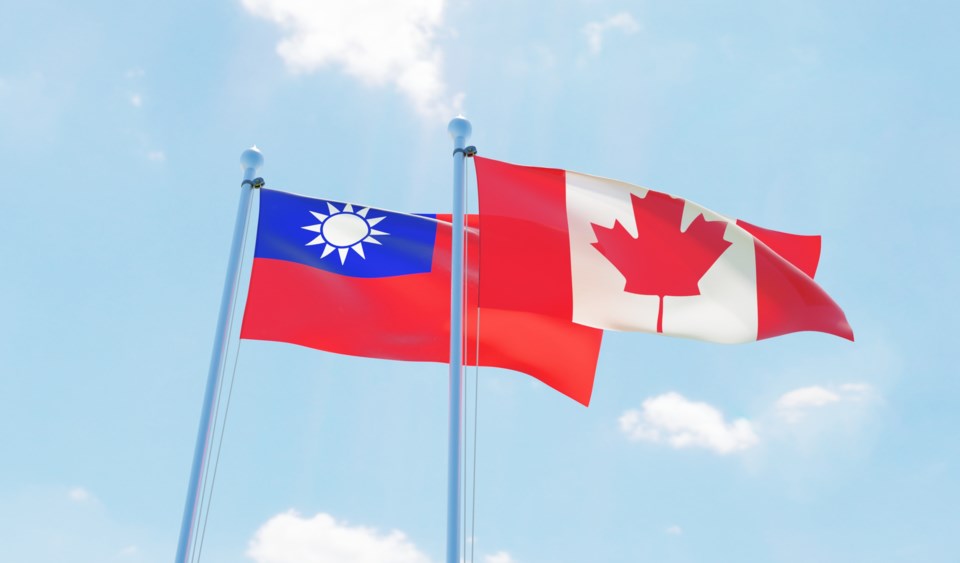Canada has been a world leader when it comes to the adoption of EVs and carbon capture technologies. Although there are ongoing debates among Canadians from coastal to prairie provinces over the swift imposition of carbon taxes and the economic impacts of environmental regulations, climate change is an existential threat for humanity. Unprecedented atmospheric rivers have led to major floods in Abbotsford and North Vancouver, significant glacial recession has become the new normal at the Columbia Icefield and dozens of wildfires from last year were found to be still burning beneath layers of snow this spring. Given that the effects of climate change know no borders, the international community must rally together, instead of backing away with indifference and inaction.
As COP29 continues this week in Azerbaijan, we hope that Canada can support Taiwan’s bid to participate in the United Nations Framework Convention on Climate Change (UNFCCC) without political considerations. Taiwan’s participation within the UNFCCC can be pursued in line with a motion which was just passed overwhelmingly in Canadian Parliament—that the United Nations General Assembly Resolution 2758, which recognizes the People’s Republic of China as the only legitimate representative of China to the UN, should not be used as an excuse to exclude Taiwan’s international participation.
While it’s currently not a party to the UNFCCC, Taiwan has taken great strides for a greener and cleaner future. Leaders within the country have enshrined “net-zero emissions by 2050” into law, rolled out a carbon fee system for high emitters, and established the National Climate Change Committee. Engaging with a wide spectrum of environmental experts and industry partners, the committee is actively coming up with plans to accelerate carbon reduction technology adoption, encourage sustainable lifestyles, secure adaptive resilience, and advance synergies between green and digital transitions. Three major funds have also been set up by national policymakers to stimulate the growth of net-zero industries, resource-circular projects and green investments.
Along with policy reforms, Taiwan is working actively with international partners to advance green innovations. As Canada has developed cutting-edge carbon capture and sequestration technologies, export capabilities for its liquified natural gas and advanced energy storage systems, this has led to a rapid increase in exchanges between Taiwan and Canada over the past two years. Just last month, Taiwan, Canada, Japan, Australia and the U.S. got together under the auspices of the Global Cooperation and Training Framework and hosted a symposium on how to keep our oceans clean. Attracting participants from 21 countries, the event came up with novel ways to strengthen ocean health monitoring, disaster risk mitigation and blue economy practices.
Having Taiwan within the UNFCCC will provide it with the tools necessary to be in sync with global climate mitigation efforts. The UNFCCC has mechanisms in place, such as the biennial transparency and national inventory reports, which allow participating governments to exchange information. With a focus on moving industries away from environmentally harmful practices and advancing greenhouse gas removal, these reports provide valuable opportunities for each participating government to review their progress and make improvements to their environmental policies. As Taiwan is taking active steps to implement its carbon fee system and a new framework for renewable energy power purchase agreements, it would be very helpful if its environmental policymakers can be included in these reporting structures. In addition to these reporting structures, the UNFCCC will be hosting working groups at COP29 which will discuss land use, agricultural practices and other policies that are beneficial for local communities and Indigenous Peoples. As a leading technology powerhouse that is home to 16 Indigenous Peoples, Taiwan is experienced with advancing innovation and respecting tradition; the UNFCCC will greatly benefit with Taiwan’s participation.
We hope that Canada can back Taiwan’s push to be included within the UNFCCC. As climate change knows no borders, the global response should not stop at them.
Angel Li-hsin Liu is director general of the Taipei Economic and Cultural Office in Vancouver.


